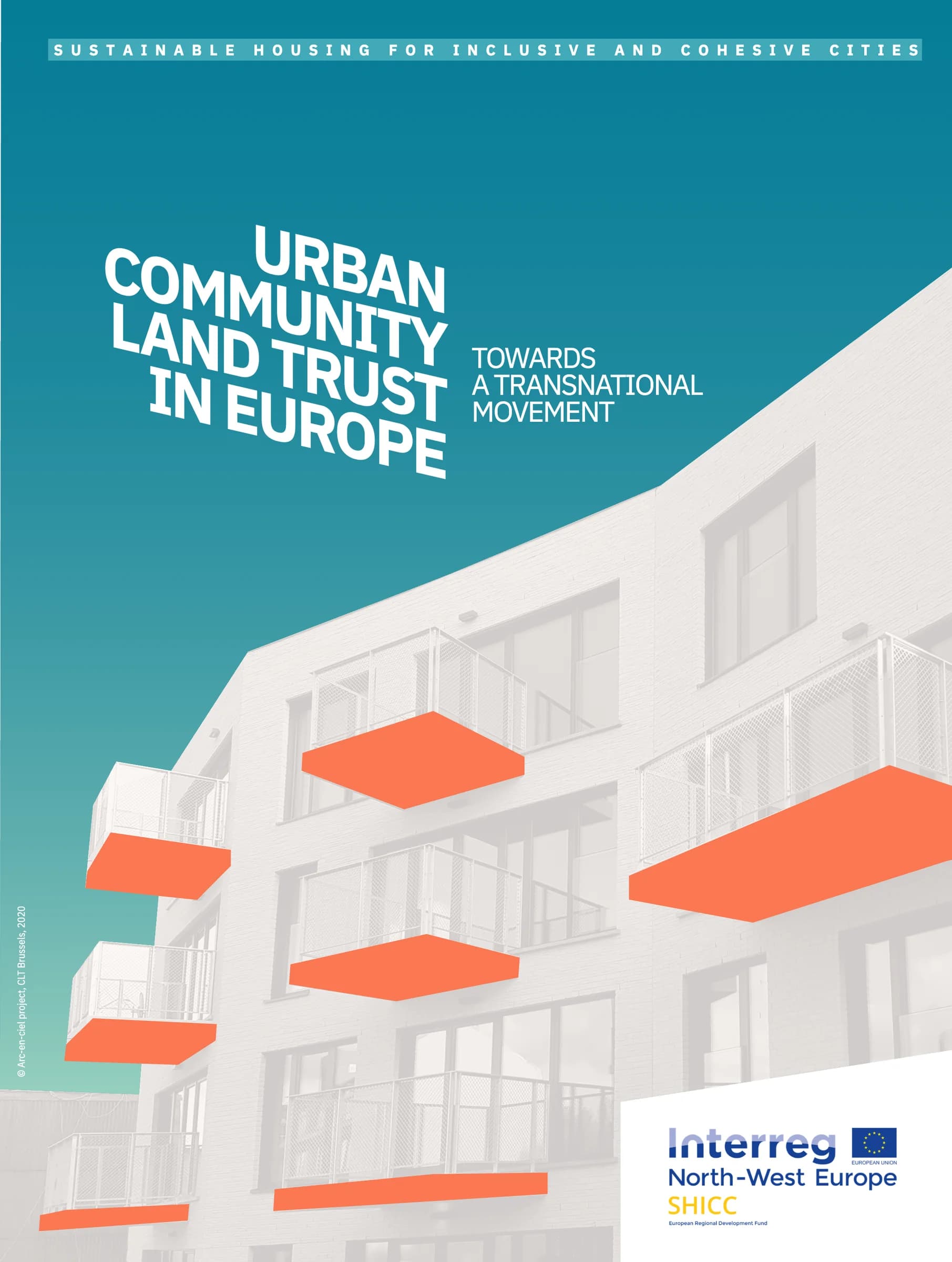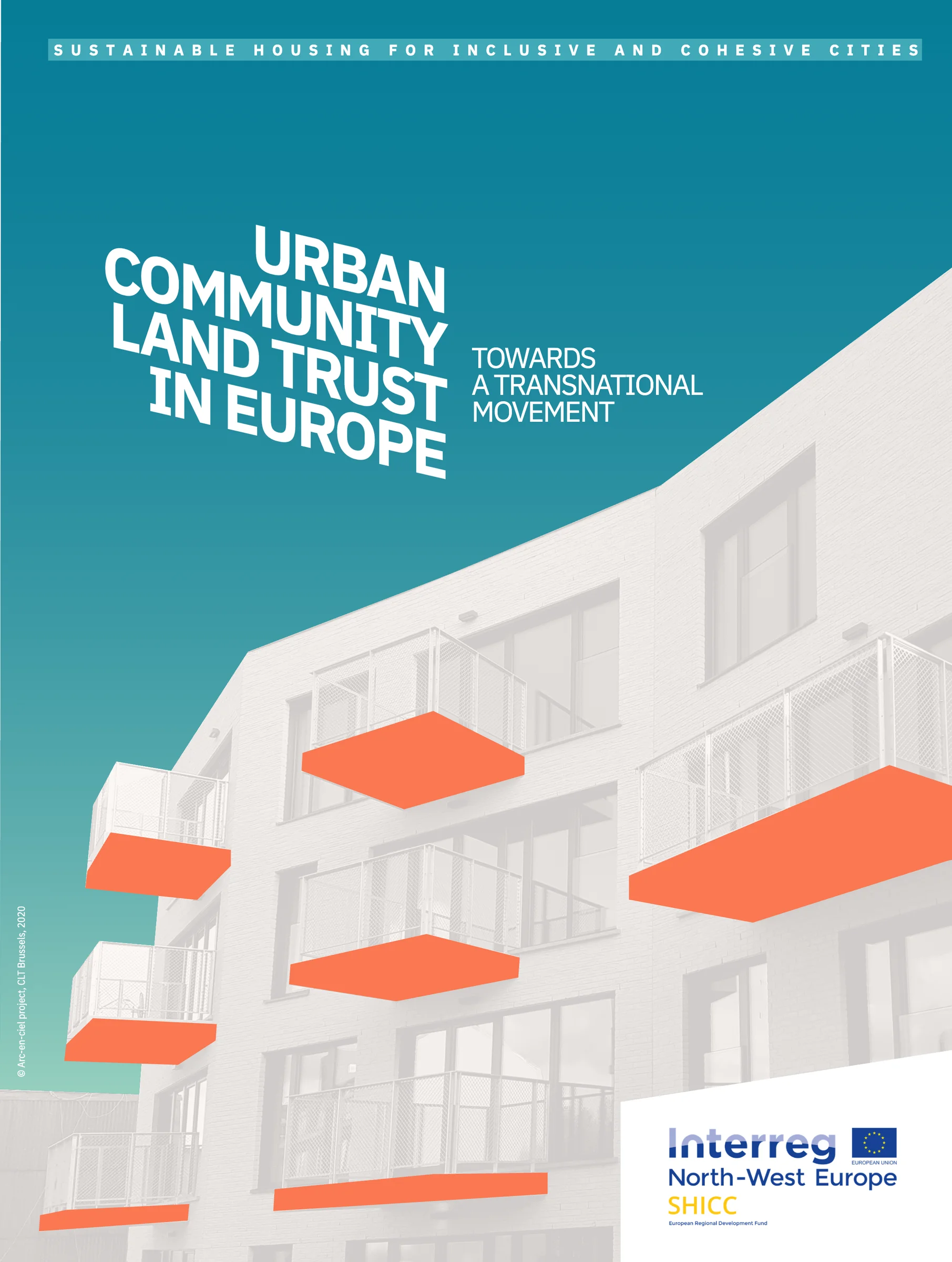AI-Generated Summary
Context and Purpose
The document titled "Urban Community Land Trust in Europe" was published by the Arc-en-ciel project, CLT Brussels, and aims to address the housing affordability crisis in European cities. It explores the Community Land Trust (CLT) model as a sustainable solution for creating inclusive and cohesive urban environments. The CLT model seeks to redefine property ownership by advocating for collective ownership and promoting affordable housing for low- and medium-income households.
Housing Affordability Crisis
The report highlights a significant deterioration in housing affordability across Europe, especially in urban centers, where prices have surged by 30 to 50% in the past decade. This crisis exacerbates socio-economic inequalities and threatens social cohesion, particularly for vulnerable households. The financialization of the housing market has transformed homes into commodities, undermining their social purpose.
Community Land Trusts Overview
Community Land Trusts are non-profit, democratic organizations that develop and manage affordable housing and communal assets. They ensure long-term affordability through mechanisms that retain added value within the CLT. The model is rooted in principles of community organization, collective ownership, and sustainable governance, aimed at creating cohesive neighborhoods. 🇬🇧 Development Across Europe The document outlines the development of CLTs across various European countries, including the UK, Belgium, France, the Netherlands, Germany, Ireland, and more. The CLT movement has gained traction in response to declining public housing investment and the rising demand for affordable housing solutions. Notably, the UK has over 300 CLTs, delivering nearly 1,000 homes, while Belgium and France are also making strides in implementing the model.
Achievements of the SHICC Programme
The Sustainable Housing for Inclusive and Cohesive Cities (SHICC) program, operational from 2017 to 2021, aims to establish a structured CLT movement in Europe. With a total budget of €3.8 million, the program has successfully launched pilot CLTs in various cities, implemented capacity-building activities, and facilitated the development of financial models to support CLTs. It highlights the importance of collaboration among local authorities, community organizations, and financial institutions.
Key Features of CLTs
The document emphasizes the unique features of CLTs, such as tripartite governance that includes current and future residents, neighbors, and public officials. This governance model fosters community involvement and decision-making, ensuring that housing remains affordable and accessible. The CLT model also includes mechanisms like resale formulas to maintain affordability over time, making it a viable alternative to traditional housing models.
Environmental and Social Impact
CLTs contribute to sustainable urban development by promoting environmentally friendly practices and fostering social cohesion. They not only increase the supply of affordable housing but also empower residents through community engagement and capacity-building initiatives. The document notes that CLTs can be seen as part of the broader movement towards achieving the Sustainable Development Goals, particularly in relation to housing as a basic human right.
Resources and Next Steps
The report concludes with a call for continued advocacy and support for the CLT model across Europe. It suggests that formal recognition of CLTs within local and national policy frameworks is essential for their growth. The document also provides useful resources for those interested in developing CLTs, including case studies, financial guides, and advocacy toolkits to facilitate community-led housing initiatives.

